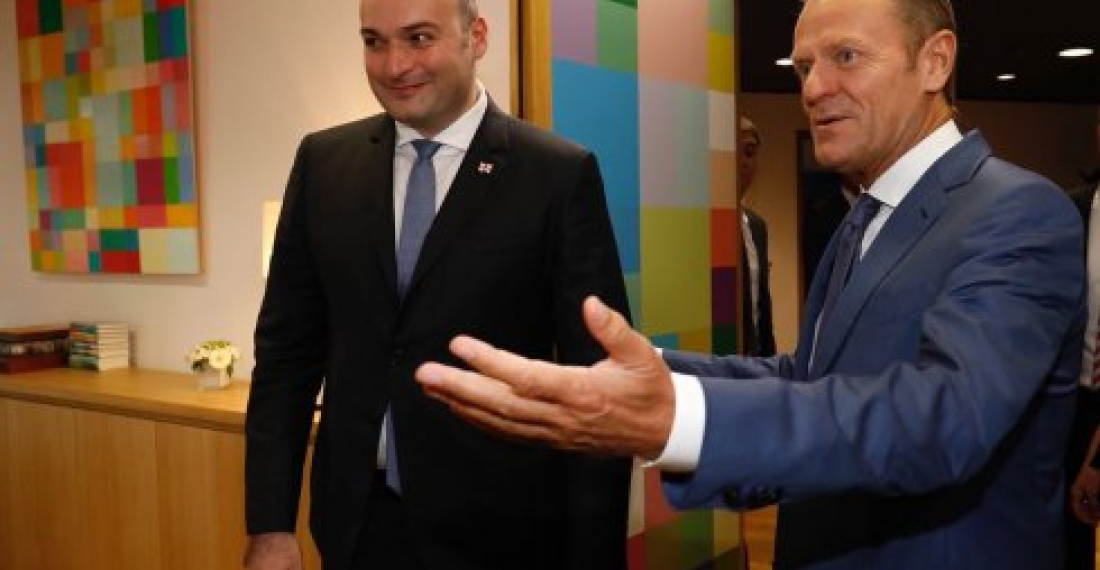"The European Union and Georgia are close partners and friends. In our meeting today, the Prime Minister and I confirmed our determination to further deepen our cooperation on the basis of the ambitious Association Agreement and take into account the strategic character of Georgia's political association and economic integration with the Union." This was stated by the President of the European Council, Donasld Tusk when he received the new Georgian prime minister Mamuka Bakhtadze, who was on his first official visit overseas since his appointment. Tusk congratulated Bakhtadze and said that the visit was very symbolic.
"The EU remains a strong supporter of Georgia's successful reform process. We agreed on the need to keep up these efforts", Tusk added.
Donald Tusk added:
"I took great interest in our discussions on the regional situation. Georgia is situated in a challenging neighbourhood, where it plays a crucial role as facilitator and bridge builder. The EU appreciates Georgia's efforts in this respect and we look forward to continuing to work together to advance stability, security and development in this region. Furthermore, there is great appreciation for Georgia's constructive role in the Eastern Partnership and as a security provider to both European and transatlantic missions abroad.
As we will soon be commemorating the 10th anniversary of the war between Georgia and Russia in August 2008, let me reiterate the European Union's unwavering support for the sovereignty and territorial integrity of Georgia within its internationally recognised borders. It is important to note that in these past ten years, Georgia has succeeded in strengthening its democratic institutions and developing a thriving economy. The European Union will continue to provide support to Georgia and to reinforce the country's resilience and capacity to find a peaceful resolution of the conflicts. In this context, we welcome the initiative 'a step to a better future', which provides people living in Abkhazia and South Ossetia with new trade and education opportunities. We stand ready to provide further assistance to support its implementation."
Later Tusk tweeted
Happy to welcome new Prime Minister @BakhtadzeMamuka in Brussels today. Georgia is a close partner and friend of the EU. Today I confirmed our determination to further deepen our cooperation.
— Donald Tusk (@eucopresident) July 19, 2018
My press remarks: https://t.co/t5eJ74uXbA pic.twitter.com/QrBbxGPn4L
source: commonspace.eu







